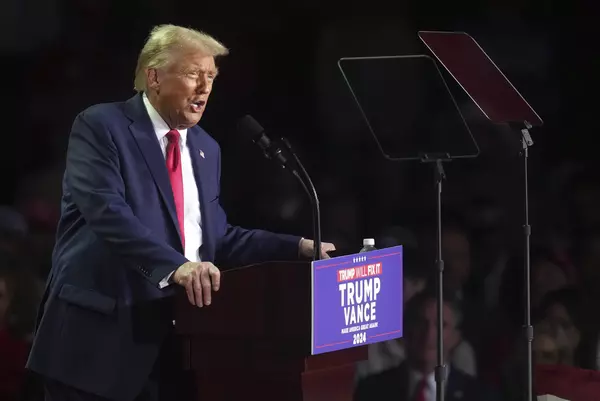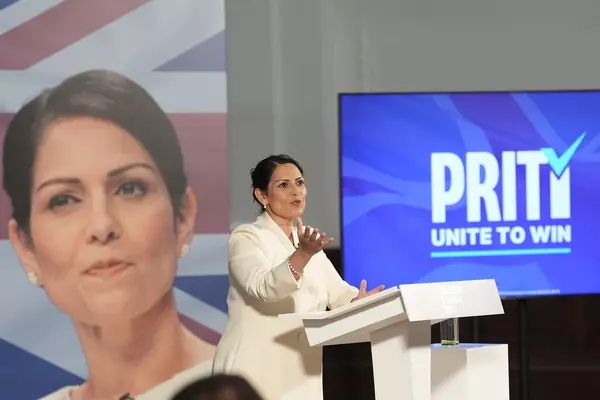MIAMI — In the run-up to the 2018 election, Broken Promises — a mysterious nonprofit group registered to a UPS box in the nation’s capital — gave $25,000 to a political committee called Consumers for Energy Fairness. It was the first donation the committee received that year.
The next day, Consumers for Energy Fairness passed $25,000 to Ron DeSantis’ political committee, according to state campaign finance records.
The donation raised no eyebrows. The sum was a fraction of the nearly $59 million DeSantis collected in his successful bid for governor. And there is no ban on DeSantis or any other candidate receiving money funneled from nonprofits like Broken Promises, which don’t have to disclose their donors.
But a trove of documents leaked to the Miami Herald/Tampa Bay Times reveals the hidden financial backer behind Broken Promises: Florida Power & Light, the powerful electric utility now at the center of a string of political scandals. The scandals involve attempts by FPL’s political consultants to secretly manipulate Florida elections.
Broken Promises’ donation to DeSantis is the first time the governor’s campaign has been linked, in this case indirectly, to the activities of FPL’s political consultants.
In one controversy among many, consultants working for FPL used Broken Promises to covertly fund a spoiler candidate in a 2018 Gainesville-area state Senate race, a Herald/Times investigation found. The candidate, a longtime Democrat, split the liberal vote, ensuring that a Republican friendly to the utility hung on to the seat.
Saurav Ghosh, director of federal campaign finance reform at the nonpartisan Campaign Legal Center in Washington, D.C., likened the arrangement to “election rigging” and said it potentially violated state campaign finance laws against shielding the true source of political contributions.
FPL is allowed to contribute to any political campaigns it chooses — unless the contribution is deliberately channeled through third parties in a bid to obscure its source. Campaigns are not obliged to research the source of money given to them by donors.
As the state’s largest utility, FPL would have good reason to want to curry favor with any future governor.
In Florida, the governor appoints members of the Public Service Commission, which regulates utilities. During DeSantis’ term, four of the PSC’s five members have had their terms expire, allowing the governor to replace them. The governor also has the power to sign or veto legislation sought by the utility. And his agencies have oversight over issues such as the handling of its transmission lines, gas pipelines, water resources, power line construction, and electric vehicle charging stations.
Although DeSantis has supported several of FPL’s initiatives since taking office, including a rate increase, he vetoed a high-profile solar-energy bill pushed by the utility earlier this year.
Neither DeSantis’ 2022 reelection campaign nor the governor’s office responded to questions for this story.
The fact that Broken Promises’ funding came from FPL was hidden until the Herald/Times and other news outlets anonymously received records from inside Matrix, the utility’s Alabama-based political consulting firm. Those records include an internal ledger showing how Matrix distributed funds labeled as coming from FPL, including $200,000 to Broken Promises.
FPL spokesperson David Reuter called the ledger “fake.”
He denied that FPL funded Broken Promises and said the utility follows all campaign finance laws.
“We have no record of FPL, or any NextEra Energy entity for that matter, ever having paid Broken Promises,” Reuter said. NextEra Energy is the utility’s parent company.
DeSantis has not commented on FPL’s political activities. The governor’s newly formed election police agency has focused thus far on arresting individuals who may have registered and voted despite being ineligible due to past criminal convictions.
The ledger shows that on Sept. 26, 2018, Matrix sent $100,000 of FPL funds to Broken Promises. A week later, Broken Promises gave $25,000 to Consumers for Energy Fairness, according to state campaign finance records. The next day, Consumers for Energy Fairness gave that same amount to Friends of Ron DeSantis, the future governor’s political committee, the state records show.
Money originating with FPL, which first passed through Matrix, provided Broken Promises with the entirety of its funding in 2018, the records reveal: Federal tax filings show Broken Promises raised a total of $200,000 — and it all came from FPL via Matrix, according to the ledger.
Consumers for Energy Fairness did not respond to requests for comment.
By law, nonprofits like Broken Promises are supposed to primarily support social welfare causes.
Broken Promises was run by a former Matrix lobbyist named Sean Jason Anderson, who appointed his mother to join him on its board.
Anderson and his mother did not respond to requests for comment.
Broken Promises was one of a string of nonprofits run by Matrix allies with names like the Alliance for Consumer Protection, Mothers for Moderation and the Consumer Policy League, which then contributed money to political campaigns. In leaked text messages, then-Matrix CEO Jeff Pitts made it clear that he and FPL controlled the nonprofits and how their money was spent.
“Bottom line is we are the ones with the check books and in control 100 percent,” Pitts told FPL Vice President Daniel Martell in a 2016 text message.
An attorney for Pitts has said that the documents are “false and misleading” and are being leaked in an effort to “defame” him.
Matthew Corley, lead investigator for the watchdog group Citizens for Responsibility and Ethics in Washington (CREW), said voters need to know who is actually funding political campaigns and potentially influencing elected officials.
“Voters understandably may find it more valuable to learn that a company with particular interests provided a large contribution to a candidate or committee than if a little-known nonprofit with a generic mission did,” Corley said.
CREW filed an IRS complaint against Broken Promises in 2020 alleging that it broke federal tax and election laws by engaging primarily in politics, not social welfare activities.
The nonprofit shut down two weeks after CREW’s complaint.
Separate from any activities involving Matrix, FPL directly contributed $325,000 to the state Republican Party and $172,500 to the Florida Democrats during the 2018 election cycle, state records show. Some of that money could have found its way into the campaigns of DeSantis and his Democratic opponent, Andrew Gillum, although the commingling of funds with money from other donors makes tracking these dollars difficult.
FPL’s only direct contribution to DeSantis was $754.63 worth of food and beverages, campaign finance records show.
DeSantis was not FPL’s preferred candidate in the 2018 Republican gubernatorial primary. Instead, the utility spent heavily backing his opponent, Adam Putnam, then Florida’s Agriculture Commissioner.
Ben Wilcox, director of the government accountability group Integrity Florida speculated that FPL may have used nonprofits like Broken Promises to mask the extent of its political contributions.
“They already have the reputation as the biggest player in Florida politics,” he said, “so maybe they’re trying to keep from reinforcing that reputation.”
Reaching across the aisle
Matrix spread FPL’s money across the political aisle.
Two other nonprofits funded by FPL, according to the ledger, contributed to the Florida Democratic Party and the Republican Party of Florida in 2018.
Mothers for Moderation gave $230,000 to the Florida Democrats in August 2018 and another nonprofit called Conservatives for Better Leadership gave $225,000 to the state Republicans in October 2018, state records show.
While FPL is allowed to make political contributions in its own name — and did so to the tune of $8.3 million during the 2018 election cycle — those donations to the two state parties were made indirectly.
The Florida Democratic Party did not respond to requests for comment. Neither did Mothers for Moderation.
The donation from Conservatives for Better Leadership to the Florida Republicans happened the same day that Broken Promises contributed to DeSantis’ political committee, state records show.
The Alabama-based group’s director, Apryl Marie Fogel, declined to comment beyond saying: “Not my circus, not my monkeys.”
Helen Aguirre Ferré, spokeswoman for Florida’s Republican Party, suggested the contributions from an opaque nonprofit to the state GOP were business as usual.
“The Republican Party of Florida in 2018 received millions of dollars in contributions from a wide variety of sources to advance the election of GOP candidates,” Ferré wrote in an email. “The contributions you are speaking of are not new to us. RPOF publicly reported them as they occurred.”
Wilcox, of Integrity Florida, said the donations to both Democrats and Republicans shows FPL “currying favor with both sides” as part of an “equal opportunity” approach to gaining influence.
“Their legislation depends on it,” Wilcox said.
This year, Democrats joined Republicans in the Florida Legislature to pass a solar energy bill backed by FPL. The bill would have allowed Florida electric utilities to impose steep fees on businesses and homeowners who install solar panels. Records show FPL wrote the bill’s first draft.
But DeSantis issued a veto. He said it could increase costs on people in an inflation-burdened economy.
In other cases, however, DeSantis and his appointees have supported the utility.
Last year, the Public Service Commission voted to allow FPL to raise customer bills $4.7 billion over the next four years — and even higher if the company’s federal tax bill goes up and if interest rates rise. The governor also signed into law legislation sought by the FPL that restricts natural gas hookups in new construction and prevents local governments from regulating dirty energy sources. And this year he approved a $2.3 million tax break for FPL’s green hydrogen power plants.
———







